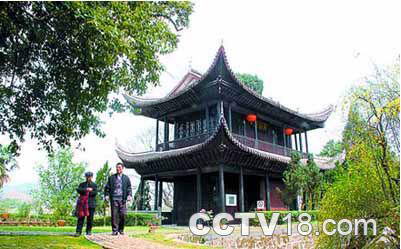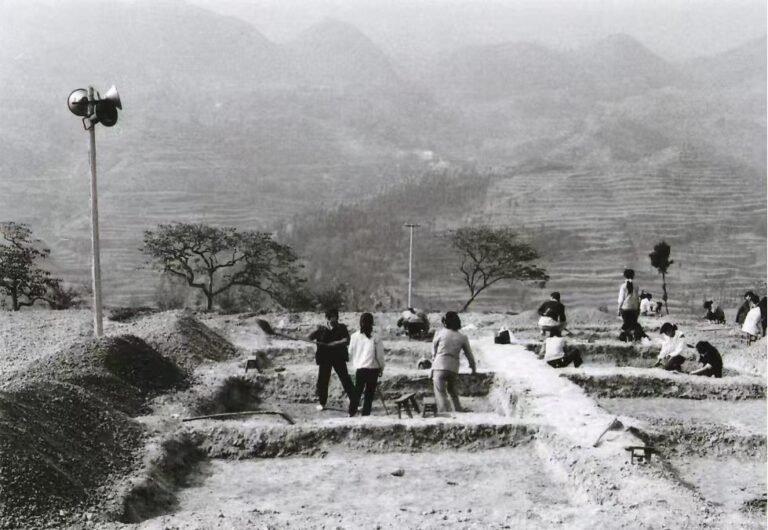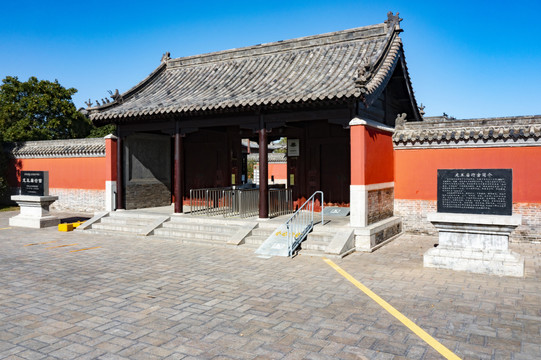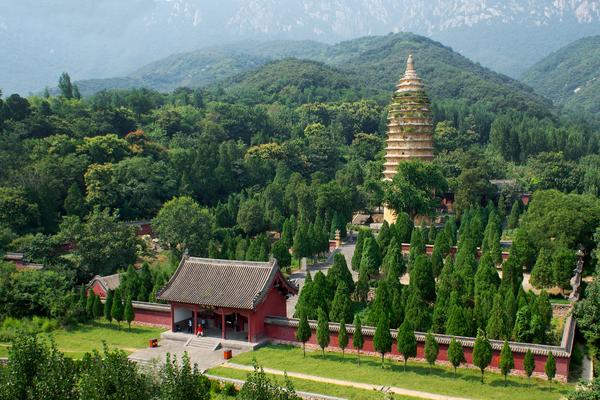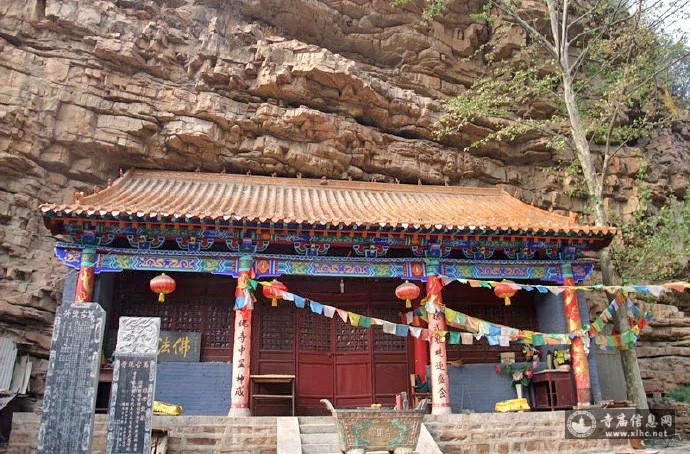Exploring the Rich History and Culture of Yongzhou Guizailing Yizhi in Hunan
An Essential Guide to Visiting Yongzhou Guizailing Yizhi
In This Guide
- An Essential Guide to Visiting Yongzhou Guizailing Yizhi
- The Rich History of Yongzhou Guizailing Yizhi
- Main Highlights: What to See at Yongzhou Guizailing Yizhi
- Planning Your Visit: A Practical Guide
- Tickets, Hours, and Booking
- How to Get There
- Local Cuisine and Accommodation
- Frequently Asked Questions
- Final Thoughts on Your Trip
Nestled in the verdant hills of Hunan Province, the Yongzhou Guizailing Yizhi (鬼崽岭遗址) offers an extraordinary glimpse into ancient Chinese civilization. This archaeological site, located in the tranquil village of Tianguangdong, is renowned for its stunning collection of over 10,000 stone statues, thought to date back to prehistoric times through to the Tang Dynasty. Often referred to as the “ghost children” (鬼崽崽) by locals due to the multitude of small, childlike figures scattered throughout the region, Guizailing is not just a testament to artistic craftsmanship but also a significant religious and cultural heritage that has captivated scholars and visitors alike.
The site is believed to have served as a major ritual center, potentially linked to the worship of Emperor Shun, a legendary figure in Chinese history. With its rugged landscape and thick forest cover, Guizailing exudes an aura of mystery, where the echoes of ancient rituals still resonate. As you wander through the sprawling grounds, you’ll encounter a fascinating mix of stone carvings, including figures of civil officials, warriors, and even pregnant women, each telling a unique story of the past.
Visiting Guizailing is not merely a journey through history; it is an exploration of humanity’s deep-seated need for reverence and remembrance. This enchanting site invites travelers to reflect on the beliefs and practices of those who came before, making it a must-visit for anyone interested in ancient cultures, archaeology, and the rich tapestry of Chinese heritage. Whether you are an intrepid explorer or a casual traveler, the Guizailing Ruins promise an unforgettable experience that bridges the past with the present.
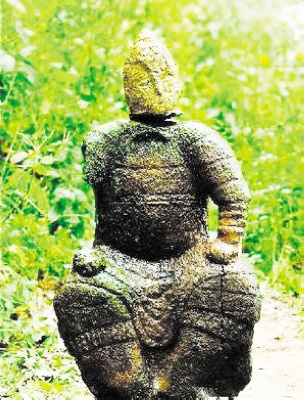
Yongzhou Guizailing Yizhi.
The Rich History of Yongzhou Guizailing Yizhi
Nestled in the lush hills of Yongzhou, Hunan Province, the Yongzhou Guizailing Yizhi (鬼崽岭遗址) is a remarkable archaeological site that offers a glimpse into ancient Chinese civilization. The site is renowned for its extensive collection of stone statues, which date back thousands of years, making it one of the most significant discoveries in the field of ancient sculpture.
The origins of the Yongzhou Guizailing Yizhi can be traced back to prehistoric times, with evidence suggesting that the area served as a major ceremonial site. Archaeological investigations have uncovered over 10,000 stone figures, ranging in height from just a few centimeters to about a meter. These figures include depictions of officials, soldiers, and various human forms, including pregnant women, which suggest a complex ritualistic culture centered on fertility and ancestral worship. The statues are believed to span several historical periods, from the prehistoric era through the Qin, Han, and into the Tang and Song Dynasties.
Local legends intertwine the history of Guizailing with the story of Emperor Shun, a revered figure in Chinese mythology. According to historical texts, Emperor Shun passed through the region during his southern tours and is said to have been buried in the nearby Jiuyishan Mountains. This connection has led some scholars to speculate that the stone figures may represent offerings or commemorations related to his legacy. The villagers, who refer to the statues affectionately as “guizai,” hold a deep respect for these figures, seeing them as guardians of their community.
The site was largely forgotten until its rediscovery in the 1980s, when local authorities began to document its significance. Experts from the Hunan Provincial Cultural Heritage Administration have since conducted extensive surveys, concluding that the site is one of the largest and oldest collections of human figure stone carvings in China, surpassing even the famous Terracotta Army in Xi’an in terms of quantity.
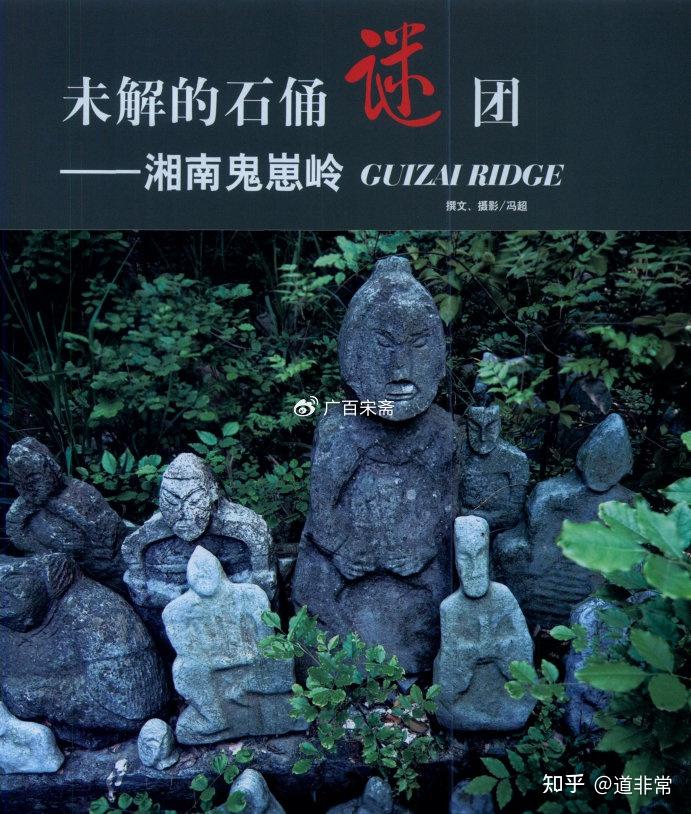
Yongzhou Guizailing Yizhi.
Despite its historical significance, the Yongzhou Guizailing Yizhi remains shrouded in mystery. There are few written records detailing its exact origins or the specific rituals that took place there. The lack of comprehensive archaeological excavation means that many questions about the site remain unanswered. As researchers continue to study the area, the hope is that further discoveries will illuminate the rich tapestry of beliefs and practices that characterized this ancient society.
The site today stands as a testament to the enduring legacy of China’s prehistoric cultures, inviting visitors not only to witness the artistry of ancient stonework but also to ponder the spiritual lives of those who once thrived in this verdant landscape.
Main Highlights: What to See at Yongzhou Guizailing Yizhi
The Yongzhou Guizailing Yizhi (鬼崽岭遗址) is a captivating archaeological site nestled in the heart of the picturesque Hunan Province. This ancient site, renowned for its vast collection of stone figures, offers a fascinating glimpse into the rituals and beliefs of early civilizations. Here are the key highlights of this extraordinary location:
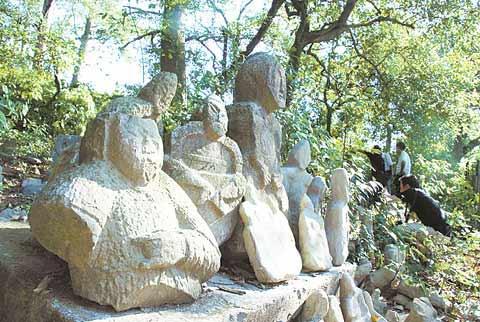
Yongzhou Guizailing Yizhi.
-
Ancient Stone Carvings: The site is home to over 10,000 stone carvings, making it one of the largest collections of ancient human-like sculptures in the world. The figures vary in height from mere inches to nearly a meter, with representations of officials, soldiers, and even pregnant women, reflecting the rich tapestry of ancient societal roles.
-
Historical Significance: Archaeological studies suggest that the stone figures date back to the prehistoric period, continuing through the Qin and Han dynasties, with more recent additions during the Tang and Song eras. This extensive timeline showcases the site’s long-standing cultural and religious importance.
-
Connection to Emperor Shun: Local legend associates the site with Emperor Shun, a revered figure in Chinese history who is said to have died during a southern tour and was buried nearby. Some scholars speculate that these stone figures may have been used in rituals honoring his memory, adding a layer of historical intrigue to the site.
-
Unique Artistic Techniques: The sculptures exhibit a distinctive artistic style characterized by exaggerated features and rough craftsmanship, which may indicate their origins in a time when artistic expression was more about spiritual representation than aesthetic perfection.
-
Mystical Atmosphere: The site itself is enveloped in a mysterious ambiance, enhanced by the dense forests and natural beauty surrounding the stone figures. Visitors often report feeling a sense of reverence as they navigate through the remnants of ancient worship practices.
-
Cultural Practices: The local community continues to regard the site with reverence, conducting rituals and ceremonies to honor the spirits believed to inhabit the stone figures. This ongoing connection to the past highlights the enduring significance of the site in contemporary culture.
-
Access and Exploration: Located in the Tian Guang Dong Village, the site is accessible yet remains relatively undiscovered by mainstream tourism, offering a quiet and contemplative experience for those who wander its pathways.
Visiting Yongzhou Guizailing Yizhi provides a unique opportunity to step back in time and explore the mysteries of ancient Chinese spirituality and artistry, making it a must-see for history enthusiasts and curious travelers alike.
Planning Your Visit: A Practical Guide
Practical Guide to Yongzhou Guizailing Yizhi (鬼崽岭遗址)
Location and Access
Yongzhou Guizailing Yizhi, also known as the Guizailing Sacrificial Site, is situated in the lush hills of Tian Guandong Village, approximately one kilometer south of Xianglinpu Town, Daoxian County, Hunan Province, China. The site is tucked away in a relatively remote area, making it a peaceful retreat for visitors interested in ancient history and archaeology.
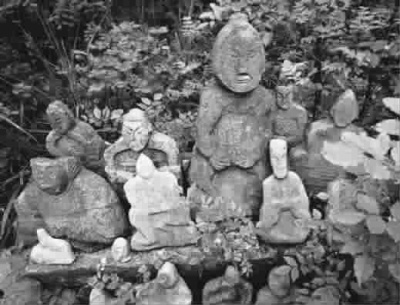
Yongzhou Guizailing Yizhi.
To reach the site, you can take a bus or drive from Yongzhou city. Local transportation options might be limited, so renting a car or using a ride-hailing service could be the most convenient option. The nearest major city is Yongzhou, which is about 30 kilometers away.
Opening Hours and Admission
The site is open year-round, but it’s advisable to check ahead for specific opening hours as they can vary. While there is currently no standardized ticket price, entrance fees are rumored to start from around 66 RMB. Group discounts may be available, so consider reaching out to local travel agencies for potential deals.
What to Expect
Guizailing Yizhi is renowned for its extraordinary collection of ancient stone sculptures, with estimates suggesting over 10,000 figures, some dating back to prehistoric times. Visitors will find a variety of stone carvings representing officials, soldiers, and even pregnant women, reflecting the rich cultural and spiritual heritage of the region.
-
Sculpture Viewing: The stone figures are scattered across an area of approximately 15,000 square meters. Expect to see both weathered and well-preserved carvings, some of which are part of the ongoing archaeological studies. The craftsmanship varies, with many statues displaying a unique, rugged style indicative of their age.
-
Sacrificial Site Significance: The site is believed to have been a major sacrificial ground associated with the worship of Emperor Shun, an important figure in Chinese mythology. As you explore, you’ll notice the deep cultural respect the locals have for these sculptures, which are often honored during traditional festivals.
-
Atmospheric Environment: The surrounding natural beauty enhances the mysterious ambiance of the site. Lush greenery, chirping birds, and flowing water create a tranquil setting ideal for contemplation and photography.
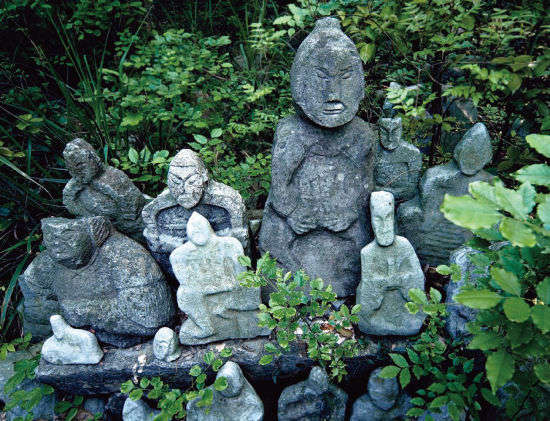
Yongzhou Guizailing Yizhi.
Tips for Visitors
-
Guided Tours: Consider joining a guided tour to gain deeper insights into the history and significance of the site. Knowledgeable guides can provide context to the sculptures and share local legends associated with the area.
-
Respect Local Customs: The stone figures are treated with reverence by the local community. Visitors should be mindful of their behavior, avoiding any actions that may be considered disrespectful.
-
Prepare for the Terrain: The site is located in a hilly area, and paths may be uneven. Wear comfortable walking shoes and be prepared for some light hiking.
-
Photography: Bring a camera to capture the unique sculptures and beautiful landscapes. However, be sure to check if photography is allowed in all areas.
-
Stay Hydrated and Snack Ready: Facilities may be limited, so carry water and snacks to maintain your energy while exploring.
Nearby Attractions
After visiting Guizailing Yizhi, consider exploring nearby attractions such as:
– Jiuyi Mountain Scenic Area: Known for its stunning natural landscapes and hiking opportunities.
– Jiangyong Female Characters Culture Park: Only a short distance away, this park showcases the unique writing system developed by women in the region.
– Local Cuisine: Don’t miss the chance to try local dishes at nearby restaurants. Hunan cuisine is known for its bold flavors and spicy dishes.
Whether you are a history buff or simply looking for an off-the-beaten-path destination, Yongzhou Guizailing Yizhi offers a fascinating glimpse into ancient Chinese culture amidst serene natural surroundings.
Tickets, Hours, and Booking
When planning a visit to the Yongzhou Guizailing Yizhi (鬼崽岭遗址), it’s essential to be aware of the ticketing details to enhance your experience.
Tickets Information:
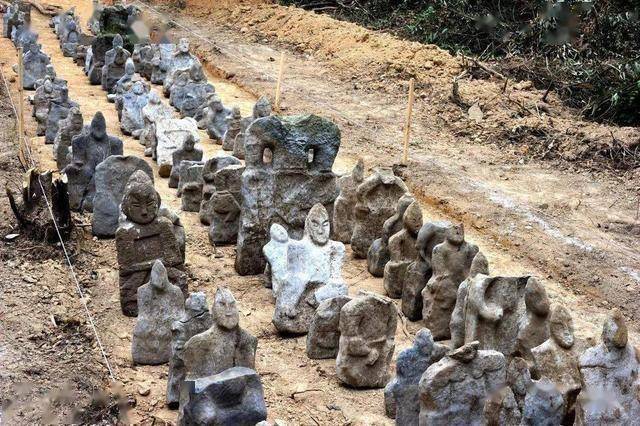
Yongzhou Guizailing Yizhi.
As of now, entry to the Yongzhou Guizailing Yizhi is priced at approximately ¥66 (RMB) per person. This fee grants you access to the remarkable ancient stone statue site, which features over 10,000 sculptures dating back to various historical periods, including the pre-Qin and Han Dynasties.
It’s advisable to check for any group discounts or promotional offers that might be available through local travel agencies or online platforms. Advanced booking is recommended, especially during peak tourist seasons, to ensure availability and potentially secure better rates.
Additionally, while the site typically operates throughout the week, it is wise to confirm the current opening hours before your visit, as they may vary based on local events or maintenance schedules. If you’re planning to visit during a holiday or festival, expect larger crowds, which may affect your experience.
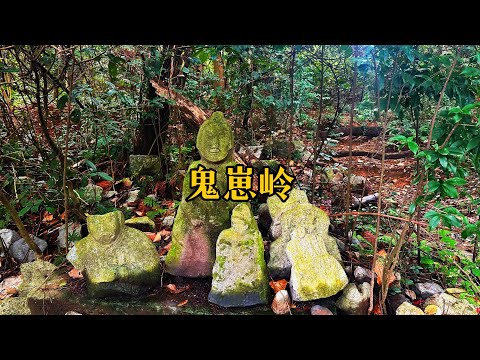
Yongzhou Guizailing Yizhi.
For the most seamless experience, consider reaching out to the local tourism office or checking their official website for the latest updates on ticket prices, guided tours, and special events that might coincide with your visit.
How to Get There
Getting to Yongzhou Guizailing Yizhi (鬼崽岭遗址) requires some planning, especially given its remote location near the town of Xianglinpu in Daoxian County, Hunan Province. Here’s a comprehensive guide to help you navigate your journey to this fascinating archaeological site.
By Air
The nearest major airport to Yongzhou Guizailing Yizhi is Yongzhou Lingling Airport (LLF), located approximately 40 kilometers away from the site. This airport has domestic flights connecting to major cities such as Beijing, Shanghai, and Guangzhou. From the airport, visitors can hire a taxi or arrange for a private transfer to reach the site.
By Train
Yongzhou also has a railway station, with connections to various cities in Hunan Province and beyond. If you’re traveling from nearby cities, such as Changsha or Guilin, taking a train can be a comfortable option. Once you arrive at Yongzhou Railway Station, you can take a local bus or a taxi to Daoxian County, which is about 30 kilometers away from the train station.
By Bus
Long-distance buses run regularly from major cities in Hunan to the Daoxian Bus Station. Services from Changsha, the provincial capital, and other surrounding cities like Guilin and Nanning are readily available. The journey can take anywhere from 3 to 5 hours, depending on traffic and your departure city. From Daoxian Bus Station, you can take a taxi or a local bus to the Guizailing site, which is around 10 kilometers away.
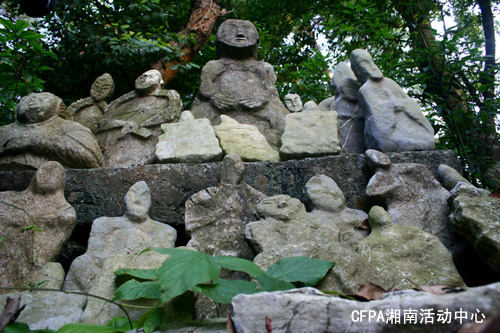
Yongzhou Guizailing Yizhi.
Local Transportation
Once in Daoxian County:
– Taxis: Taxis are available for hire in Daoxian, and they can take you directly to the Guizailing Yizhi. It’s advisable to confirm the fare beforehand or ensure the meter is used.
– Private Cars: If you prefer a more personalized experience, consider renting a car or hiring a driver for the day. This gives you the flexibility to explore the surrounding areas at your own pace.
– Walking: For those already in the nearby villages, walking to Guizailing is an option, especially if you enjoy hiking and want to take in the scenic views.
Accessibility
The site itself is somewhat rugged, situated in a mountainous area. Wear comfortable shoes if you plan to explore the grounds, as the terrain can be uneven. Currently, there are no public transportation options directly to the site, so planning ahead with taxis or private vehicles is essential.
Important Tips
- Language: While some locals may speak basic Mandarin, English is not widely spoken. Having a translation app or a guidebook can be helpful.
- Timing: Make sure to check the opening hours of the site before your visit, as they may vary seasonally or due to special events.
- Reservations: If you are going in a larger group, consider contacting local tour operators ahead of time to arrange transportation and guides.
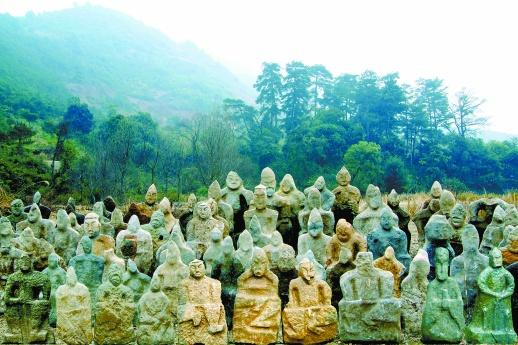
Yongzhou Guizailing Yizhi.
By following this transportation guide, you can ensure a smooth journey to Yongzhou Guizailing Yizhi and enjoy the rich history and culture that this unique site has to offer.
Local Cuisine and Accommodation
When visiting Yongzhou’s Guizailing Yizhi (鬼崽岭遗址), a site steeped in ancient history and mystery, you’ll want to make the most of your culinary and lodging experiences to complement your exploration. Here are some delightful food and accommodation options to consider during your trip.
Dining Recommendations
-
Local Cuisine
Embrace the flavors of Hunan cuisine, known for its bold and spicy dishes. A popular local eatery is Nüshu Yaoshan Youcha, where you can enjoy traditional dishes like spicy fish hotpot and steamed pork with chili. The vibrant flavors and fresh ingredients make this a must-try. -
Western Dining
If you’re in the mood for something different, Hao Ke Lai (Galaxy Store) offers a pleasant selection of Western dishes, including steaks and pasta. The ambiance is cozy and ideal for winding down after a day of sightseeing. -
Quick Bites
For a fast and casual meal, KFC (Yongzhou Xiaoshui Road) is just a short drive away. It’s a convenient spot for travelers looking for familiar comfort food, particularly if you’re in a hurry to return to the site. -
Pastries and Desserts
Don’t miss out on Niuwa Cake Shop, known for its delightful pastries and local sweets. Grab some traditional snacks to enjoy while exploring the scenic surroundings.
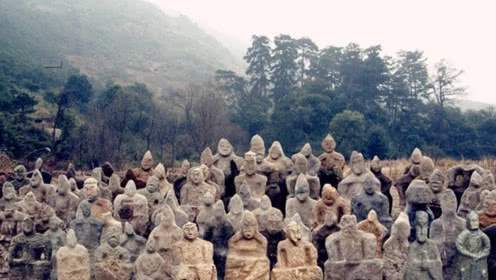
Yongzhou Guizailing Yizhi.
Accommodation Options
-
Daoxian He Yi International Hotel
Rated highly for its comfort and service, this hotel is located conveniently near the town center, making it an excellent base for your explorations. It features modern amenities and spacious rooms, ensuring a restful stay. -
Daoxian Versailles Hotel
This hotel combines elegance with affordability. Offering well-appointed rooms and a restaurant on-site, it’s perfect for travelers who appreciate a touch of luxury without breaking the bank. -
Wangting Business Hotel
For those seeking a budget-friendly option, Wangting provides clean and comfortable rooms at competitive prices. Its central location makes it easy to access local attractions and dining options. -
Xiangzhang Tree Inn
Nestled in a serene area, this inn offers a quiet retreat after a day of adventure. With cozy rooms and a friendly atmosphere, it’s ideal for travelers looking for a homely feel. -
Yongzhou Mingzhidu Hotel
A bit further from the main attractions, this hotel is known for its excellent service and hospitality. It’s a great choice if you’re looking for a peaceful environment to unwind.
Whether you’re indulging in local flavors or relaxing at a welcoming hotel, the food and accommodation options near Guizailing Yizhi promise to enhance your travel experience. Enjoy your journey through this captivating historical landscape!
Frequently Asked Questions
Frequently Asked Questions about Yongzhou Guizailing Yizhi (鬼崽岭遗址)
-
What is Yongzhou Guizailing Yizhi?
Yongzhou Guizailing Yizhi, also known as the Guizailing Sacrificial Site, is an ancient site located in the southern part of Hunan Province, China. It features an extensive collection of stone carvings that date back thousands of years, believed to be related to ancient sacrificial practices. -
Where is Guizailing Yizhi located?
The site is situated in the Tian Guang Dong Village of Xianglinpu Town, approximately one kilometer south of Guizailing Mountain in Daoxian County, Yongzhou City, Hunan Province. -
What are the opening hours?
Visitors are advised to check with the site management for specific opening hours, as these may vary. It’s recommended to visit during daylight hours for the best experience. -
Is there an entrance fee?
Yes, there is an entrance fee to visit the site. The ticket prices can vary, so it’s best to check local travel websites or contact the site directly for the most current pricing and any potential discounts. -
What can visitors expect to see at the site?
Visitors will find a vast array of ancient stone carvings, including figures of officials, soldiers, and pregnant women. The carvings are scattered across a 15,000-square-meter area, showcasing unique craftsmanship and historical significance. -
How can I get to Guizailing Yizhi?
The site is accessible by car or local transport from major cities in Hunan. If traveling from Yongzhou City, it is advisable to use a private vehicle or arrange for a local guide for the easiest access. -
What is the historical significance of Guizailing Yizhi?
The site is believed to have been used for sacrificial rituals since prehistoric times, potentially connected to the legendary Emperor Shun. It contains one of the largest collections of ancient stone statues in China, which offers insights into ancient beliefs and practices. -
Are there any nearby attractions?
Yes, visitors can explore several nearby attractions, such as the historic Jiuyi Mountain and local cultural sites that delve into the rich heritage of the region. Combining these visits can enhance your understanding of the area’s historical context.
Final Thoughts on Your Trip
As you stand amidst the ancient stone figures of Yongzhou Guizailing Yizhi, the air thick with mystery and history, you’ll find yourself transported back through the millennia. This remarkable site, with its staggering array of over ten thousand stone statues, invites you to ponder the rituals and beliefs of those who once walked these lands. Each figure, whether depicting a noble official or a humble soldier, speaks to the rich tapestry of Chinese civilization and its enduring connection to the past.
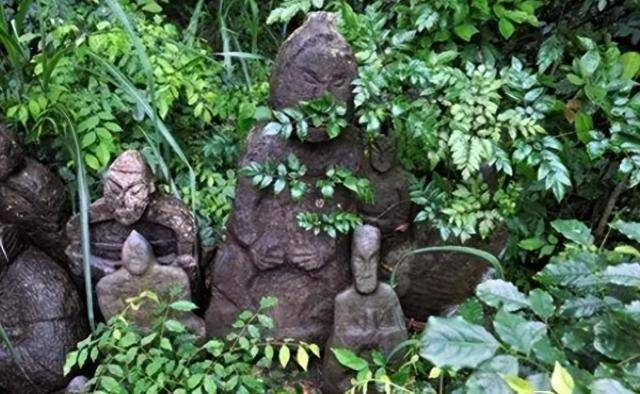
Yongzhou Guizailing Yizhi.
Visiting Guizailing is not merely an exploration of ancient artifacts; it’s an opportunity to engage with the spiritual heritage of the region, believed to be a sacred site for worship and remembrance. The local lore surrounding the site, including its ties to Emperor Shun and the continuation of ancient rites, adds layers of intrigue that enhance your experience.
As you conclude your journey through this archaeological wonder, take a moment to reflect on the legacy that these stones represent. They are not just remnants of a bygone era but testaments to the human spirit’s quest for meaning, reverence, and community. Whether you’re a history enthusiast, a spiritual seeker, or simply a curious traveler, Yongzhou Guizailing Yizhi promises to leave an indelible mark on your soul, urging you to carry its stories forward into the modern world. So, embrace the mysteries, respect the echoes of the past, and let this extraordinary site inspire your own journey through time.
